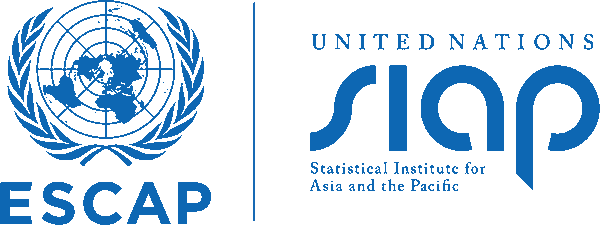
The Food and Agriculture Organization is the custodian agency responsible for developing and updating international methodologies and standards related to food and agriculture statistics.
The 2030 Agenda offers a vision for food and agriculture as key to sustainable development. Officials in the NSOs and agricultural ministries achieve knowledge on agricultural and rural statistics, fishery statistics and food statistics.
[Topics]
□ Agricultural and rural statistics
□ Fishery statistics
□ Food statistics
The Food and Agriculture Organization is the custodian agency responsible for developing and updating international methodologies and standards related to food and agriculture statistics.
This regional workshops is to provide capacity development on methodology, data collection and calculation of selected SDG indicators related to sustainable and productive agriculture to government officials responsible for monitoring SDGs. These include SDG indicators 2.3.1, 2.3.2, 2.4.1, 5.a.1 and 12.3.1.
The objective of this workshop is to build the technical capacity of the target audience to compile the SDG indicators under FAO custodianship and report them at national and international levels. In particular, after the workshop the target audience is expected to have a clear understanding on:
• FAO’s role on SDG monitoring and implementation at regional and national level;
• Methodology for the compilation of the of 21 indicators under FAO custodianship;
• National data sources to be used to generate the SDG indicators under FAO custodianship;
The objectives of the training course are to enhance the capacity of the National Statistical Office, the Ministries of Agriculture and/or the Ministries of Food through provision of training to statistical staff. At the end of the workshop participants’ knowledge will be increased as well as their skills to produce data; apply appropriate statistical methods to produce PHL statistics and indicators including GFLI; interpret and utilise these for monitoring progress in achieving the SDGs.
The course aims to provide technical guidance on the selection and application of appropriate sampling methods for producing the minimum set of core data items for agricultural and rural statistics. Specifically, the objectives of the course are to:
(i) Examine the minimum set of core data items for agricultural and rural statistics in the context of the application of sampling methods for data collection and production of associated statistics and indicators; and
The overall objective of this training is to strengthen the technical capacity of statistical producers (statistical offices and other institutions) to apply relevant international comparable methods and standards in the compilation of agricultural cost of production statistics by:
• Increasing understanding of various types of costs related to agricultural operations and how these concepts can be integrated in agricultural and rural statistics data collection programmes;
- Improve the capacity of countries to adopt cost-effective and reliable methods for producing minimum set of agricultural and rural statistics;
_ Improve the competencies of national statistical systems (NSS) to produce and disseminate a minimum set of agricultural and rural statistics in accordance with international standards and good practices through training and technical assistance.
This workshop is aimed at addressing the need of statistical offices and statistical units of agricultural ministries of producing timely statistics through adoption of new technologies for data collection and production of global minimum core data items. The workshop will provide a strong foundation in Computer Assisted Personal Interviewing (CAPI) functions. Participants are expected to acquire skills to implement a basic survey.
The training course is divided into two parts: (a) Agricultural Cost of Production Statistics and (b) Communication and Advocacy for Statistics.
The objective of the Agricultural Cost of Production Statistics component training is to strengthen the technical capacity of statistical producers (statistical offices and other institutions) to apply relevant international comparable methods and standards in the compilation of agricultural cost of production statistics by: